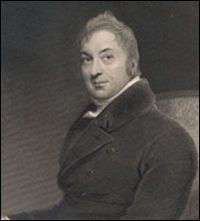Edward Anthony Jenner (17 May 1749 – 26 January 1823) was an English scientist who studied his natural surroundings in Berkeley, Gloucestershire. Jenner is widely credited as the pioneer of smallpox vaccine, and is sometimes referred to as the “Father of Immunology”; his works have been said to have “saved more lives than the work of any other man”.
Smallpox
Lady Mary Wortley Montagu witnessed the Ottoman Empire practice of variolation during her 1716-1718 sojourn in Istanbul, where her husband was the British ambassador. She brought the idea back to Britain. Voltaire, a few years later, recorded that 60% of people caught smallpox, with 20% of the population dying of it. In the years following 1770 there were at least six people in England and Germany (Sevel, Jensen, Jesty 1774, Rendell, Plett 1791) who had successfully tested the possibility of using the cowpox vaccine as an immunization for smallpox in humans. For example, Dorset farmer Benjamin Jesty had successfully vaccinated and presumably induced immunity in his wife and two children with cowpox during a smallpox epidemic in 1774, but it was not until Jenner’s work some twenty years later that the procedure became widely understood. Indeed, Jenner may have been aware of Jesty’s procedures and success.
Jenner’s Initial Theory:
The initial source of infection was a disease of horses, called “the grease”, and that this was transferred to cows by farm workers, transformed, and then manifested as cowpox.
Noting the common observation that milkmaids did not generally get smallpox, Jenner theorized that the pus in the blisters which milkmaids received from cowpox (a disease similar to smallpox, but much less virulent) protected the milkmaids from smallpox. He may have had the advantage of hearing stories of Benjamin Jesty and others who deliberately arranged cowpox infection of their families, and then noticed a reduced smallpox risk in those families.
On 14 May 1796, Jenner tested his hypothesis by inoculating James Phipps, a young boy of 8 years (the son of Jenner’s gardener), with material from the cowpox blisters of the hand of Sarah Nelmes, a milkmaid who had caught cowpox from a cow called Blossom, whose hide hangs on the wall of the library at St George’s medical school (now in Tooting). Blossom’s hide commemorates one of the school’s most renowned alumni. Phipps was the 17th case described in Jenner’s first paper on vaccination.
Jenner inoculated Phipps with cowpox pus in both arms on the same day. The inoculation was accomplished by scraping the pus from Nelmes’ blisters onto a piece of wood then transferring this to Phipps’ arms. This produced a fever and some uneasiness but no great illness. Later, he injected Phipps with variolous material, which would have been the routine attempt to produce immunity at that time. No disease had followed. Jenner reported that later the boy was again challenged with variolous material and again showed no sign of infection.
Known:
Smallpox is more dangerous than variolation and cowpox less dangerous than variolation.
Hypothesis:
Infection with cowpox gives immunity to smallpox.
Test:
If variolation after infection with cowpox fails to produce a smallpox infection, immunity to smallpox has been achieved.
Consequence:
Immunity to smallpox can be induced much more safely than by variolation.
Ronald Hopkins states: “Jenner’s unique contribution was not that he inoculated a few persons with cowpox, but that he then proved they were immune to smallpox. Moreover, he demonstrated that the protective cowpox could be effectively inoculated from person to person, not just directly from cattle. In addition he tested his theory on a series of 23 subjects. This aspect of his research method increased the validity of his evidence.
He continued his research and reported it to the Royal Society, who did not publish the initial report. After improvement and further work, he published a report of twenty-three cases. Some of his conclusions were correct, and some erroneous – modern microbiological and microscopic methods would make this easier to repeat. The medical establishment, as cautious then as now, considered his findings for some time before accepting them. Eventually vaccination was accepted, and in 1840 the British government banned variolation – the use of smallpox itself – and provided vaccination – using cowpox – free of charge. (See Vaccination acts). The success of his discovery soon began to spread around Europe and as an example was used en masse in the Spanish Balmis Expedition a three year mission to the Americas led by Dr Francisco Javier de Balmis with the aim of giving thousands the smallpox vaccine. The expedtition was successful and Jenner wrote, “I don’t imagine the annals of history furnish an example of philanthropy so noble, so extensive as this.”
Jenner’s continuing work on vaccination prevented his continuing his ordinary medical practice. He was supported by his colleagues and the King in petitioning Parliament and was granted £10,000 for his work on vaccination. In 1806 he was granted another £20,000 for his continuing work.
Legacy
In 1979, the World Health Organization declared smallpox an eradicated disease. This was the result of coordinated public health efforts by many people, but vaccination was an essential component. And although it was declared eradicated, some samples still remain in laboratories in Centers for Disease Control and Prevention (CDC) in Atlanta, Georgia in the United States, and State Research Center of Virology and Biotechnology VECTOR in Koltsovo, Novosibirsk Oblast, Russia.
The importance of his work does not stop there. His vaccine also laid the groundwork for modern-day discoveries in immunology, and the field he began may someday lead to cures for arthritis, AIDS, and many other diseases of the time.


 Welcome to the Stars Hollow Health and Fitness weekly diary. It will publish on Saturday afternoon and be open for discussion about health related issues including diet, exercise, health and health care issues, as well as, tips on what you can do when there is a medical emergency. Also an opportunity to share and exchange your favorite healthy recipes.
Welcome to the Stars Hollow Health and Fitness weekly diary. It will publish on Saturday afternoon and be open for discussion about health related issues including diet, exercise, health and health care issues, as well as, tips on what you can do when there is a medical emergency. Also an opportunity to share and exchange your favorite healthy recipes. 

Recent Comments